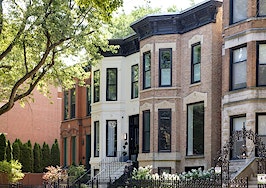The true cost of homeownership reaches far beyond down payments, closing costs and monthly mortgage. It includes other recurring costs, none more so dreaded property taxes. According to the U.S. Census Bureau, the average homeowner pays $2,375 in property taxes each year.
However, a joint study by Indiana University and the University of California-Berkeley published in late June revealed Black and Hispanic homeowners pay 10-13 percent more than white homeowners in the same tax jurisdiction.
Based on panel data for 118 million homes and geolocation data for 75,000 taxing entities, researchers Carlos Avenancio-León and Troup Howard found the tax burden stemmed from disparities in property assessment and tax appeals protocols.
“First, property assessments are less sensitive to neighborhood attributes than market prices are,” the study read. “This generates racially correlated spatial variation in tax burden within [a] jurisdiction.”
“Equitable property tax administration requires the ratio of assessed value to market value to be the same for all residents within any particular taxing jurisdiction,” it added. “This paper documents the existence of a widespread and large racial assessment gap: relative to market value, assessed values are significantly higher for minority residents.”
Avenancio-León and Howard said assessments “are insufficiently sensitive to neighborhood-level attributes,” and because of the lingering effects of state-sanctioned housing segregation, “minority residents face, on average, different neighborhood characteristics than white residents.”
The result is a higher property tax bill for Black and Hispanic homeowners, with Black homeowners shelling out 12.9 percent more per year than white homeowners in the same tax jurisdiction. For Black or Hispanic residents in aggregate, the average assessment gap is 9.8 percent, the study said.
The average assessment gap (9.8 percent) translates to an additional $300 to $390 in property taxes for the median minority homeowner. However, the tax burden can quickly balloon for minority homeowners who live in tax jurisdictions with bigger assessment gaps.
“This finding is strongly robust across most states in the U.S. We produce county-level estimates to characterize the distribution of this assessment gap,” the study added. “The average black homeowner in a county at the 90th percentile of the assessment gap distribution has a 27 percent higher assessment ratio, and would pay an extra $790 annually in property tax.”

Vermont, Oregon, Indiana and Kansas were the only states that didn’t overassess Black and Hispanic homeowners. Meanwhile, Illinois, Missouri and Ohio had the largest overassessment gaps, with Black homeowners in Cook County, Illinois, paying three times more than white homeowners in the same tax jurisdiction.
California was excluded from the study due to Proposition 13, which caps assessment growth at 2 percent during a homeowner’s tenure.

Beyond the tax assessment gap, the study revealed the tax appeals process hindered Black and Hispanic homeowners from receiving an equitable tax bill.
“Within U.S. Census block groups, which represent regions of approximately 1,200 people, an average minority homeowner has an assessment five to six percent higher relative to market price than her nonminority neighbor,” the study read. “This latter finding is particularly surprising given that most assessors likely neither know, nor observe, homeowner race.”
“We document that a significant portion of this effect arises from racial differentials in assessment appeals,” it added.
For example, minority homeowners in Cook County are less likely to appeal their property tax, and if they do appeal, they’re less likely to win. Lastly, if they win an appeal, data shows they receive smaller reductions than their white counterparts.
These two factors impact Black and Hispanic homeowners’ ability to build short-term and longterm wealth, Avenancio-León and Howard said, and results in fewer homeownership and financing options.
“At the median, the assessment gap results in a Black homeowner paying approximately $390 dollars more each year,” they explained. “This is a very large number, given that the median Black household net worth is $13,000, of which only $4,000 is in liquid assets.”
“For any discount rate below three percent, the stream of incremental tax payments suggested by our findings represents an excess tax burden which exceeds total household wealth for the median Black family,” the added. “Not only does this inhibit wealth-building directly, it may well distort homeownership and financing choices for minority residents, further exacerbating the wealth gap.”
To close the gap, Avenancio-León and Howard suggest taxing entities adopt a zip-code-based approach.
We describe an algorithm for generating assessments that relies on small-geography home price indexes,” they said. “We show that simply linking assessment growth to ZIP-code-level indexes will reduce racial inequality by 55 to 70 percent.”
“Racial inequality can be further reduced by using house price indexes that are more carefully calibrated to local geographies than zip code boundaries,” they concluded. “We believe the results we uncover in this paper represent a large source of racial inequality in the United States.”
Read the full study below:













